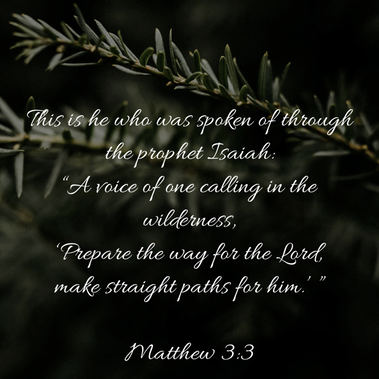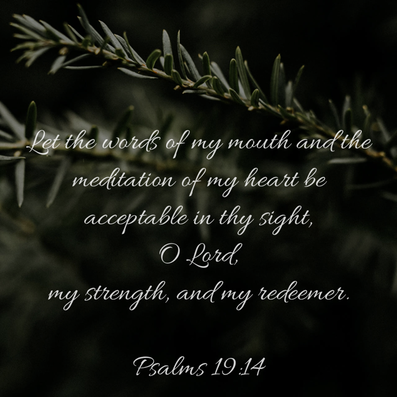|
Good morning!
We hope you had a wonderful Christmas this year, even if it looked a little different that most years. If you did not yet see this year's Christmas Program, you can click here to see it.
When we meet in person, we share our joys and concerns. Take some time to think about your past week. Most notably it included the celebration of Christmas, which may have been much different this year than in years past.
Did you find any unexpected joys in the differences? Perhaps you had new insights into the core meaning of Jesus’s birth, free from all the trappings of modern Christmas celebrations. Or maybe you are mourning the season without so many traditions that have brought you comfort and joy in the past. Or maybe you have needs and concern of a whole different kind. You can share these in the comments if you would like. Then pray the prayer below, which is by the Rev. Susan A. Blain and is posted on the United Church of Christ website.
Holy God, we long for your peace, and trust in your promise; we hear your call to turn toward you, to change our lives and welcome you in.
Meet us here and fill our minds with your wisdom and our hearts with your peace, that our time together may open us to the challenge of your dream of wholeness for all. In the Name of the One who is coming, we pray. Amen!
This week's lesson is on Matthew 3:1-12.
Lesson Context This week this section is a bit longer than usual. That is because, to understand John’s message, it is important to understand his political and religious context first. In Jesus's time mainstream Jewish religion was primarily centered in the temple in Jerusalem and, secondarily, in the local synagogues. The former was controlled by the wealthy pro-Roman Sadducees and the latter by the scribes, who were experts in the Jewish scriptures, and the Pharisees. As Jesus pointed out, both groups had become oppressive and actually hindered people in their relationship to God. (It should be noted that there were some exceptions such as Nicodemus, who came to Jesus by night seeking insight and understanding.) But in general these groups placed heavy burdens on the average worshipper, rules and regulations that were impossible for them to keep, which implied that God not readily accessible to common people. These rules and regulations were closely tied to the efforts of the Jewish elite to maintain peace with the Roman Empire. In reaction, some Jews turned to monastic movements; some turned to asceticism, seeking God through times of meditation in the wilderness; and still others joined fringe prophetic movements that promised deliverance from Roman oppression, which sometimes led to rebellion. John the Baptist was a familiar figure on the religious scene of the day and, although he was the son of a priest, he stood outside the religious establishment, both ideologically and geographically. He literally was a voice crying out in the wilderness. In addition, John came baptizing others. Jews regularly washed their hands, feet and household items for religious purification and on special occasions washed their entire bodies for the same reason. But they only washed themselves, never others. Such washing was seen as a way to remove one’s sin and impurity. Standard Jewish thinking was that it was impossible to remove someone else’s impurities and doing so would make the one performing the cleansing unclean as well. His method of baptizing others served as a powerful image of the content of his message. The content of his message was also distinctive. Unlike the groups we mentioned above, John did not call people to withdraw into the wilderness or to seek to throw off Roman rule. Instead, he called them to repent in order to prepare themselves for a great work of God that he saw looming on the horizon. John focused on second chances and emphasized the reality of God’s presence, which made him a popular figure with Jews from various backgrounds. It also drew the interest and concern of the religious authorities, who wanted nothing more than to maintain peace with Rome. Both the New Testament and the famous Jewish historian Josephus attest to John’s popularity. His refusal to compromise and his commitment to speaking the truth ultimately led to his death at the hands of Herod Antipas, Rome’s "client king." Called to Testify (verses 1 through 4) John’s message can boiled down to a call for people to repent, to become sorrowful over the realization of their misdeeds, to change the way they think and to start behaving differently. The urgency of his message stemmed from the fact that “the kingdom of heaven was near,” which would have been understood to mean that it was coming to Israel or was already present. Matthew sees John as the fulfillment of Isaiah’s prophecy in Isaiah 40:3 that there would be a voice crying in the wilderness announcing that God, as the great king, was coming to rescue the people. In the original context, Isaiah was speaking to the people who were in captivity in Babylon and the wilderness was the desert that separated them from the land God had given them. John could have gone into the city and acquired food, but he chose to stay in the wilderness, to wear rough clothing and to sustain himself on things like locusts and wild honey. I believe that John’s food and clothing were symbolic of his commitment to remain in the wilderness and to prophesy there, a commitment to stay away from the religious authorities who had established such a barrier between God and God’s people. To hear him, people had to leave that space as well and travel into the wilderness. Called to Repent (verses 5 through 10) Unlike Jesus, John did not perform miracles. So the people must have been attracted to him simply because of his integrity and his message. Crowds came out from Jerusalem seeking to hear his message and, accepting it, to be baptized by him. Not everyone who came was there to hear and accept his message, though. The Sadduces and Pharisees came as well, undoubtedly to hear his message for themselves and to return to Jerusalem to discuss what should be done about John. When John sees them in the crowd, he calls them out as a brood of vipers, as poisonous snakes and then, with a sardonic twist, he asks them, “Who warned you to flee from the coming wrath?” Of course, they were not fleeing, but John is saying that they are not exempt from God’s coming wrath. Question: Under what circumstances, if any, are Christians justified in speaking harshly to others as John did? Why do you think that? If people are truly repentant, their lives will show it. None of us is exempt from God’s judgment just because of our status among people. That was true for the religious elite of John’s day, and it is just as true today. This message is not just for new believers. It is also for people who have been in the church their whole lives and whose families have been part of the church for generations. It is important to recall the nature of John’s audience. By and large, he was not preaching to pagans. Rather, he was preaching to Jews who already believed in God and were attempting, at some level, to live by the law of Moses. John’s audience included religious leaders who were experts in the scriptures; they, too, needed to prepare. Called to Prepare (verses 11 and 12) John’s baptism was not the same as Christian baptism today. His baptism was to prepare the people for the one greater than he, Jesus. When Jesus arrived John would decrease and Jesus would increase and John’s baptism would give way to the baptism Jesus would bring. Two or three actions by God lay ahead, the baptism of the Holy Spirit, which in the synoptic gospels happens on the day of Pentecost, after Jesus’ ascension. The second is the judgment by fire, which is to come. Some Bible scholars see this as God’s ultimate judgment. Others see it as God’s purifying fire. It may be both. John goes on to warn that God’s winnowing fork is in his hand and he is preparing to clear his threshing floor and gather his wheat into his barn, burning up the chaff with fire. Chaff, the outer husk that surrounds seeds of wheat was separated from the good grain by tossing it into the air with a winnowing fork. The lighter chaff would drift in the air to the side of the floor, but the heavier seed wold fall in a pile on the floor. Afterward the farmer would clear the floor, store the good seed in his barn and burn the worthless chaff. Again, the chaff could symbolize the people who refuse to repent. On the other hand, it could symbolize the unworthy parts of each of us, the sin, that we have not repented of. Thus, this warning could be one of judgment or purification — or both. Question: What plan you make to get rid of the chaff in your life? What would be the advantages and disadvantages of recruiting an accountability partner for this task?
Conclusion
Whenever a person emerges as the lone advocate for an important cause and is later proven to be right, we may refer to that individual as “a voice in the wilderness.” Such people often feel that way themselves, alone in their cries for change and often criticized for their views. They call others to prepare for a future that is obscure to most but that they themselves foresee (or think they foresee) clearly. Like John the Baptist, these individuals are often attacked rather than appreciated. Today’s lesson reminds us of the need to prepare for Christ’s coming — in our case, for Christ’s second coming. Part of our preparation involves serving as voices in the wilderness as we speak out against the evil we see both in the world and among God’s people. Prayer Father, help us to know our own hearts so that we can be ready for your Son’s return. Help us bear the fruit you have called us to bear and to be strong in telling others that your kingdom is near. In Jesus’ name we pray. Amen.
Benediction
Today's benediction is from the Jubilee Bible.
Next week's lesson will be on Luke 4:14-22.
2 Comments
Linda
12/27/2020 09:10:21 am
Thanks to who ever did the lesson this am. Loved the music and the lesson was well done as well. Also thanks for putting it on earlier.
Reply
Christine
12/27/2020 03:33:19 pm
Don did this lesson. Mom and I really enjoyed it too!
Reply
Leave a Reply. |
AuthorWe are a small, rural Presbyterian church in southwestern Pennsylvania. Archives
July 2024
Categories
All
|



 RSS Feed
RSS Feed